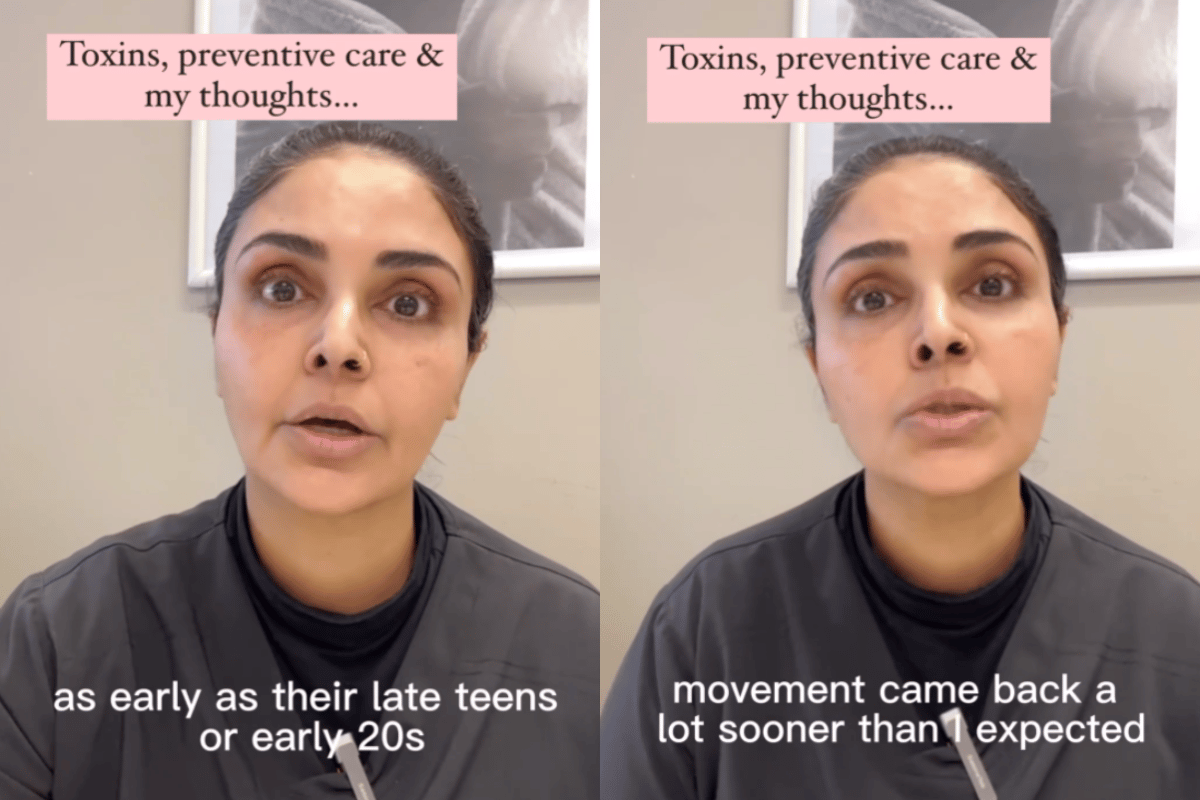
We don't mean to alarm you but, apparently, anti-wrinkle injections might not last as long as you once thought. Yes, really. Please sit.
Because as injectables become more popular than ever, experts say it's possible for anti-wrinkle injections to eventually become... ineffective on certain people.
Known as 'anti-wrinkle tolerance', or 'anti-wrinkle resistance', it's a theory where your body basically becomes immune to the effects of the injectables, which is apparently influenced by the frequency and dosage of the treatment.
Meaning? If you've been getting anti-wrinkle injections on the regular (say, every three to six months) for many, many years, there may be a risk that they will stop working one day.
Coolcoolcool.
Watch: Lauren Curtis tells her followers about the risks of getting lip injections. Post continues below.
So, what does it mean if anti-wrinkle injections don't seem to work on you? Or if they tend to stop working really quickly?
To find out more, we spoke with cosmetic doctor Dr Imaan Joshi from Skin Essentials and asked her precisely ALL of the questions.
Here's everything you need to know about becoming immune to anti-wrinkle injections.
Top Comments